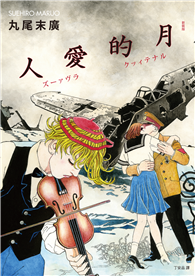| FindBook |
有 1 項符合
Tom Thatcher's Fortune的圖書 |
 |
Tom Thatcher's Fortune 作者:Horatio Alger 出版社:Green Bird Press 出版日期:2018-04-06 語言:英文 |
| 圖書館借閱 |
| 國家圖書館 | 全國圖書書目資訊網 | 國立公共資訊圖書館 | 電子書服務平台 | MetaCat 跨館整合查詢 |
| 臺北市立圖書館 | 新北市立圖書館 | 基隆市公共圖書館 | 桃園市立圖書館 | 新竹縣公共圖書館 |
| 苗栗縣立圖書館 | 臺中市立圖書館 | 彰化縣公共圖書館 | 南投縣文化局 | 雲林縣公共圖書館 |
| 嘉義縣圖書館 | 臺南市立圖書館 | 高雄市立圖書館 | 屏東縣公共圖書館 | 宜蘭縣公共圖書館 |
| 花蓮縣文化局 | 臺東縣文化處 |
|
|
Horatio Alger was a prolific 19th-century American writer, best known for his many young adult novels about impoverished boys and their rise from humble backgrounds to lives of middle-class security and comfort through hard work, determination, courage, and honesty. His writings were characterized by the "rags-to-riches" narrative, which had a formative effect on America during the Gilded Age.
All of Alger's juvenile novels share essentially the same theme, known as the "Horatio Alger myth": a teenage boy works hard to escape poverty. Often it is not hard work that rescues the boy from his fate but rather some extraordinary act of bravery or honesty. The boy might return a large sum of lost money or rescue someone from an overturned carriage. This brings the boy—and his plight—to the attention of a wealthy individual.
Alger secured his literary niche in 1868 with the publication of his fourth book, Ragged Dick, the story of a poor bootblack's rise to middle-class respectability. This novel was a huge success. His many books that followed were essentially variations on Ragged Dick and featured casts of stock characters: the valiant hard-working, honest youth, the noble mysterious stranger, the snobbish youth, and the evil, greedy squire.
In the 1870s, Alger's fiction was growing stale. His publisher suggested he tour the American West for fresh material to incorporate into his fiction. Alger took a trip to California, but the trip had little effect on his writing: he remained mired in the tired theme of "poor boy makes good." The backdrops of these novels, however, became the American West rather than the urban environments of the northeastern United States.
In the last decades of the 19th century, Alger's moral tone coarsened with the change in boys' tastes. Sensational thrills were wanted by the public. The Protestant work ethic had loosened its grip on America, and violence, murder, and other sensational themes entered Alger's works. Public librarians questioned whether his books should be made available to the young. They were briefly successful, but interest in Alger's novels was renewed in the first decades of the 20th century, and they sold in the thousands. By the time he died in 1899, Alger had published around a hundred volumes. He is buried in Natick, Massachusetts. Since 1947, the Horatio Alger Association of Distinguished Americans has awarded scholarships and prizes to deserving individuals.
|











